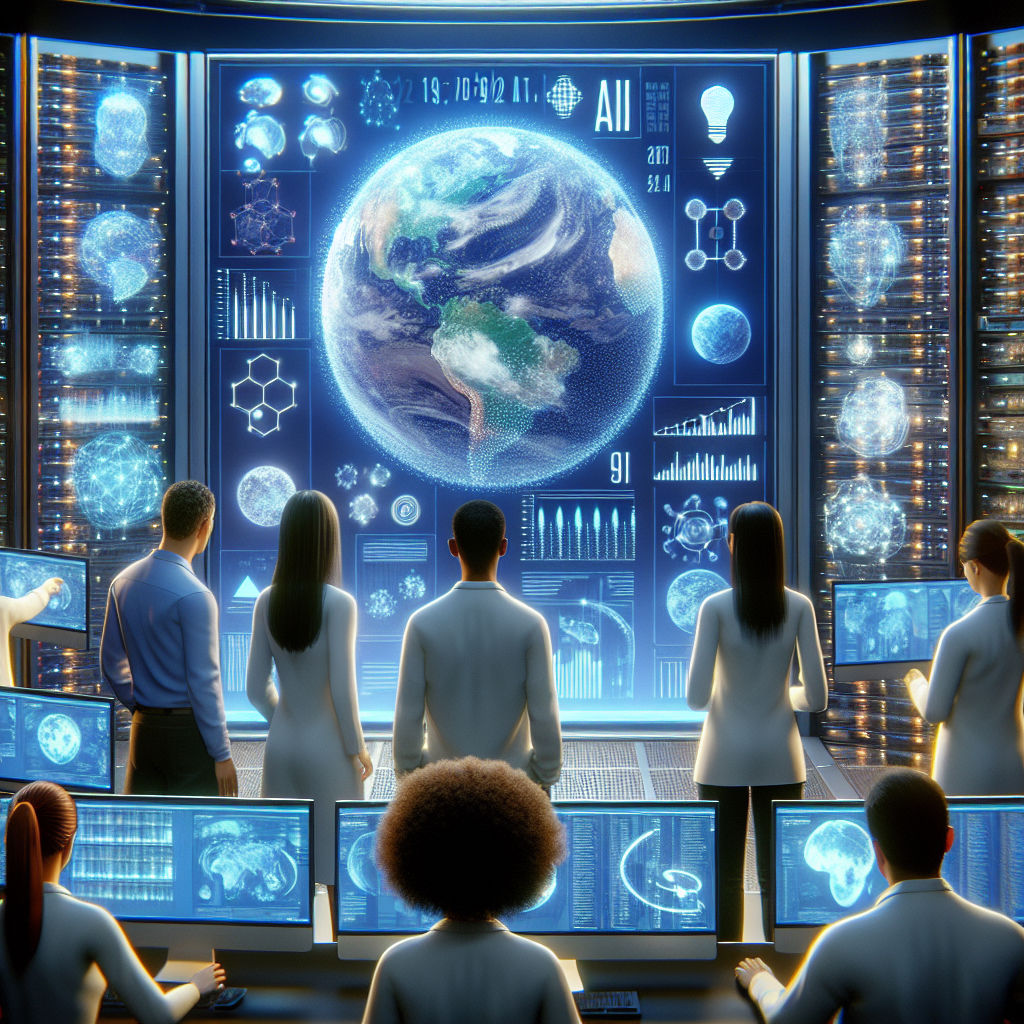Sure thing! Below is a piece written in HTML format, ready to engage and inform readers on the topic of AI in climate science.
“`html
Unpacking the Magic: How AI Transforms Climate Science
Hey there, curious mind! Have you ever wondered how artificial intelligence (AI) is reshaping our understanding of climate change? 🌍 Let’s dive into some frequently asked questions about this fascinating intersection of technology and earth sciences.
What role does AI play in climate science?
AI’s role is pretty transformative! In climate science, AI helps in processing large datasets that human scientists couldn’t manually handle. Think of it like a super-smart assistant that can analyze patterns and make predictions about weather patterns, carbon emissions, and more.
How is AI different from traditional methods in climate science?
- Speed: AI processes data much faster than traditional statistical methods.
- Scale: It can handle massive, complex datasets that are evolving at unprecedented rates.
- Precision: AI algorithms are capable of fine-tuning models to increase the accuracy of predictions.
By automating routine data analysis, scientists can focus their energy on more nuanced research questions and policy-making.
Can AI help predict extreme weather events?
Absolutely! AI is revolutionizing how we predict and respond to extreme weather events like hurricanes or floods. Using machine learning models, scientists can now anticipate these events with greater accuracy and way ahead of time compared to older models.
- Gather historical weather data and satellite imagery.
- Train machine learning algorithms on this data to recognize patterns.
- Predict upcoming extreme weather, potentially saving lives and reducing economic loss.
Exciting stuff, right? 🚀
What about reducing carbon footprint and emissions?
AI not only helps in prediction but is also a powerful ally in suggesting ways to reduce carbon footprints. For instance:
- Optimizing energy use in industries.
- Improving the efficiency of renewable energy systems.
- Enhancing precision in carbon capture technology.
Did you know? Smart grids powered by AI can dynamically adjust energy distribution and reduce waste. That’s a win for everyone! 🤖🔋
How reliable are AI predictions in climate science?
AI predictions are increasingly reliable but still require human oversight. The algorithms aren’t perfect, yet they’re continuously learning and improving.
Pro tip: Combining AI predictions with expert scientific knowledge results in more balanced and credible climate models.
So, what’s on the horizon for AI in climate science?
The future looks promising with AI contributing significantly to climate resilience strategies. It’s expected that as computing power and algorithm sophistication increase, so too will the precision and utility of AI in this field.
Imagine a world where AI not only warns us about climate disasters but actively helps prevent them. That’s the goal we’re shooting for!
Feel free to share your thoughts or questions about AI in climate science. Let’s keep this conversation going and continue exploring innovative solutions for our planet’s future. 🌿
“`
This piece is designed to answer questions in a conversational way, using headings, lists, and emphasis to guide the reader through the key aspects of how AI is integrated into climate science.
